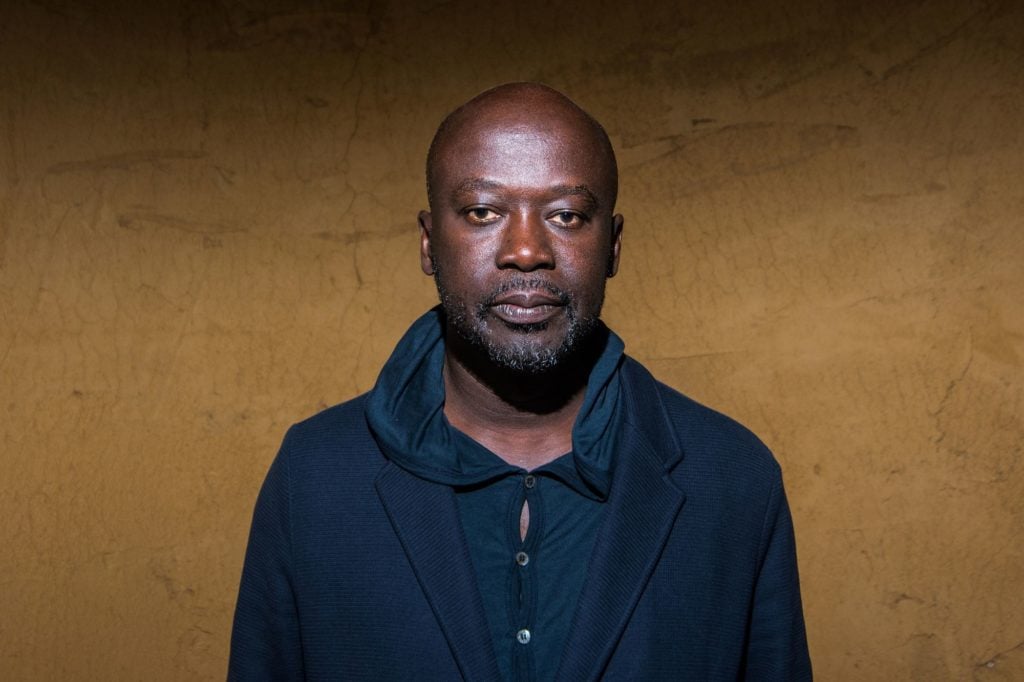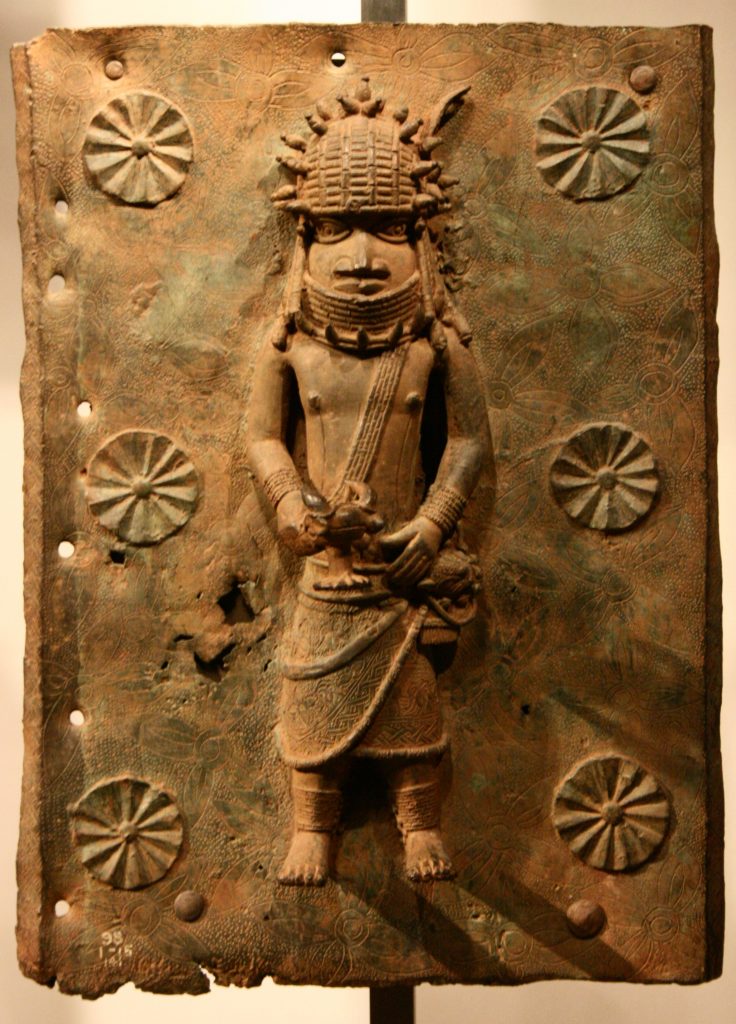Art World
Architect David Adjaye Has Been Tapped to Design a New Museum for Benin’s Looted Treasures
The architect has presented his vision for a new Benin Royal Museum that could reunite in Africa treasures currently held in Western museums.

The architect has presented his vision for a new Benin Royal Museum that could reunite in Africa treasures currently held in Western museums.

Javier Pes

Renowned architect David Adjaye is working on a new museum that could one day house treasures looted from the African kingdom of Benin during the colonial era. The British architect, who designed the Smithsonian’s critically acclaimed National Museum of African American History and Culture, has been commissioned to undertake a feasibility study for the new Benin Royal Museum in Nigeria.
A spokesperson for the architect tells artnet News that the Edo state government has commissioned Adjaye Associates and its local partner in Nigeria, Agram Architects, to undertake the feasibility study. Building a new museum would be a major step in repatriating artifacts, such as the Benin bronzes, which were looted by the British army in the late 19th century and then sold to pay for the military campaign. Many ended up in museums across Europe, as well as in the Metropolitan Museum of Art in New York. The lion’s share of the trove went to the British Museum in London. Examples were recently acquired by the Louvre Abu Dhabi.
Benin’s lost treasures are a subject close to the heart of Adjaye, who was born in Tanzania to Ghanaian parents. Adjaye was invited to contribute his ideas for the new museum at the latest meeting of the Benin Dialogue Group, the members of which include representatives from major museums in Germany, the Netherlands, Austria, Nigeria, and the UK, including the British Museum.
Adjaye’s spokesperson stressed that the architect’s experience and interest in Benin’s cultural heritage, both personally and professionally, demonstrates his commitment to supporting the group’s efforts “to ensure this history will have its place in Nigeria’s present and future.”

A Benin Bronze plaque in the British Museum, London, collection. Photo by Michel Wal, GNU Free Documentation License, Creative Commons Attribution-Share Alike 3.0 Unported, 2.5 Generic, 2.0 Generic, and 1.0 Generic license.
The Benin Dialogue Group members have been discussing the new museum since 2018. At its latest meeting, which was held in Benin City in July, Adjaye outlined his vision. In a statement, the group said that the museum would “reunite” the most significant of Benin’s historical artifacts, currently housed in various institutions around the world.
The group pledged to undertake provenance research into their collections and share the results ahead of its next meeting at the British Museum in 2020. However, the legal issue surrounding the repatriation of pieces will probably mean they will be loaned rather than permanently returned. Some critics accuse the group of having a “colonial mindset” because of its stress on their institutions’ legal ownership of the artifacts.
The multilateral discussions between mainly museum professionals comes in contrast to the French approach to the issue of African art looted in the colonial era that is held by the country’s museums. President Emmanuel Macron has championed a top-down approach to the issue of restitution, commissioning a report by the art historians Felwine Sarr and Bénédicte Savoy. They delivered their bombshell findings last November, urging restitution where appropriate.
Within days, Macron had ordered the Musée Quai Branly–Jacques Chirac in Paris and the French ministry of culture, to return 26 works requested by the the West African nation of Benin “without delay.” (Benin was formerly the French colony of Dahomey.) The restitution needs to be approved by the French senate, however, and French museum chiefs, including Quai Branly’s directors, have pushed back against the Sarr-Savoy report.
The artifacts, which include a throne looted by French troops, are destined for Benin’s new museum in the city of Abomey, which is due to be built with a €20 million loan from France and to open in 2021.
Speaking last week in London at the Arts and Business conference, Tristram Hunt, who is the director of the Victoria and Albert Museum, speculated that France may help build museums in Africa that have a similar status to their embassies on the continent, sidestepping any legal issues surrounding restitution. Hunt praised the Sarr-Savoy report but stressed that the trustees were prevented by law from deaccessioning items. However, he confirmed that the Victoria and Albert Museum is “deep in discussion” with Ethiopia about the museum’s preferred option to lend treasures looted by the British after the Battle of Maqdala in 1868 to Addis Ababa.